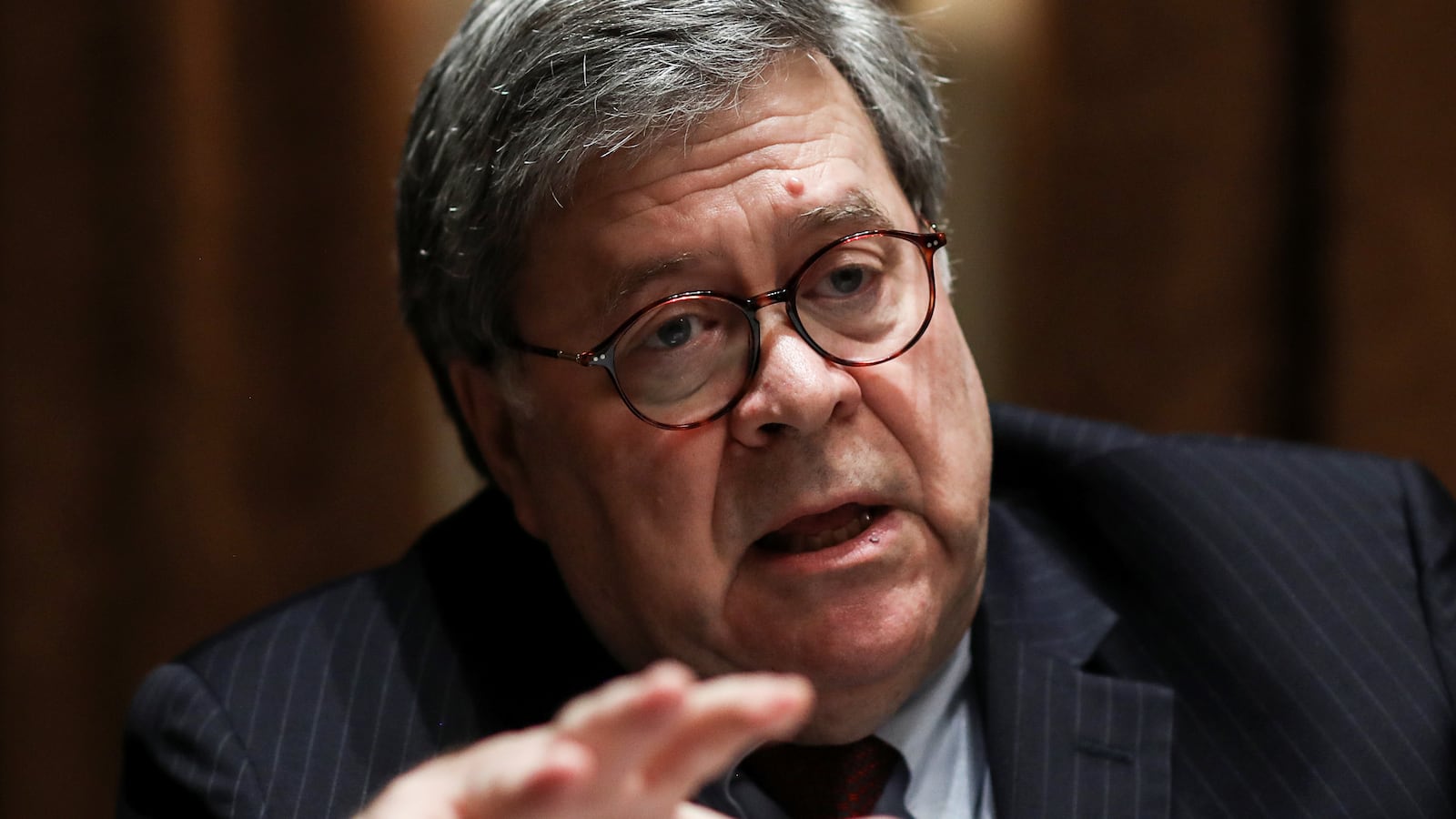The same day that Attorney General William Barr insisted there is “no pattern” of him working to advance the personal interests of President Donald Trump, several sources cited by The New York Times said one of his first moves after being sworn into office in early 2019 was trying to find ways to undermine the conviction of longtime Trump fixer Michael Cohen.
Barr had reportedly repeatedly questioned prosecutors over the charges against Cohen, who pleaded guilty in August 2018 to financial crimes that included hush-money payments to women who alleged they had affairs with Trump. He went so far as to instruct Justice Department officials to draft a legal memo casting doubt on the legitimacy of Cohen’s conviction, according to sources cited by the Times, but they refused to do so.
Meanwhile, in an NPR interview published Thursday, Barr scoffed at the notion he has been promoting Trump’s agenda at the expense of the rule of law, calling it a “media narrative” and saying there is “no such pattern.” He went on the defensive in the interview multiple times.
Barr has made several controversial interventions into cases involving President Donald Trump’s associates. In early May, he chose to drop the Justice Department’s case against Trump’s former National Security Adviser Michael Flynn, a decision that elicited blistering criticism, as Flynn had already pleaded guilty. Though Michael Flynn was the president’s National Security Adviser, Barr denied any political pressure to drop the charges against him: “I don't know whether I would refer to him as a friend of any administration,” he said.
And though Flynn admitted to lying to the FBI, Barr still cast the charges against the retired general as ludicrous: “There was a lot of hinky stuff in the Flynn case. Everyone knew that. Everyone was wondering why was this case ever brought?”
When asked about the chaotic removal last week of Geoffrey Berman, the former U.S. Attorney for the Southern District of New York who was involved in investigating many of Trump's allies, Barr dismissed the move as nothing more than a standard personnel decision.
“I certainly was aware that given the current environment, anytime you make a personnel move, you know, conspiracy theorists will suggest that there's something, there's some ulterior motive involved. But I felt this was actually a good time to do it because I was not aware of anything that should in reality, give rise to that,” he said. He said Berman was “living on borrowed time from the beginning.”
Despite insisting he treats all cases equally, he apparently could not name a single case not tied to the president's inner circle where he had staged a last-minute intervention similar to that in the Flynn case.
When pressed about the president’s executive power, Barr echoed the commander-in-chief’s rhetoric and attempted to redirect the conversation. He scolded the press for failing to scrutinize state governors, who, in order to fight the new coronavirus, have been “putting the entire population in home detention and telling people that they have to shut down their livelihood and their business,” he said. The president has often said that the measures taken against the coronavirus are worse than the sickness itself. Barr reiterated another Trump talking point when he said that an election with a high number of mail-in ballots can take place securely. He said the evidence was “obvious.”






